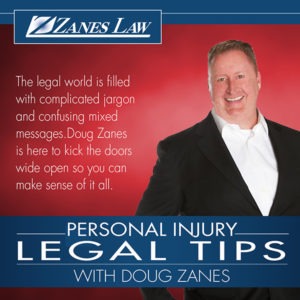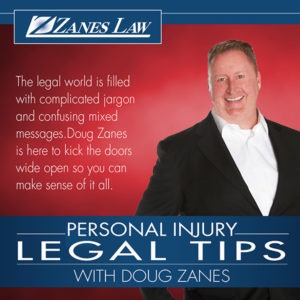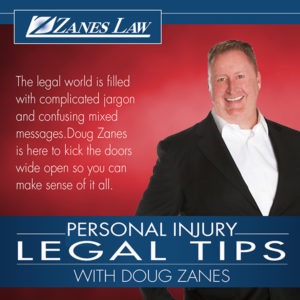![]() Contact Us (866) 499-8989
Contact Us (866) 499-8989
How do You Know If Your Deposition Went Well?
- Why does a Deposition Need to Go Well?
- Signs that a Deposition Went Well or Not
- How to Prepare for a Deposition
- Additional Tips to Help You during Deposition
- What Should I Do After a Deposition?
- Conclusion
- Home
- FAQs
- Personal Injury
- How do You Know If Your Deposition Went Well?
If your case needs to go to trial, you may have to give a deposition. A deposition is a legal proceeding where you’re questioned under oath by the opposing attorney before trial. Depositions give both sides information and evidence needed to prepare for trial, and they help establish your credibility.
How do you know if the deposition you gave went in your favor or not? That’s what we’ll explore here. If you ever need to undergo a deposition while you’re working with our Phoenix personal injury attorneys, we’ll prepare you well in advance so you can be confident when you give it.
Why does a Deposition Need to Go Well?
A deposition is a questioning done under oath, but it’s not held in a courtroom. Usually, it will be held in a lawyer’s office with the opposing attorney and a court reporter. The court reporter will record what happens in order to create an official transcript. You can have your own lawyer with you during the proceeding and can give you feedback afterward about how it went.
A good deposition can put the case in your favor and show where your lawyer needs to improve their case before the trial date. A good deposition will:
- Show how the opposing side will view your testimony
- Whether they’ll believe you’re a credible witness
- Reveal the strength of your case and how likely you are to win
- Show where you may need to improve your case before the trial
A bad deposition could destroy the foundation of your case and put you and your lawyer at a significant disadvantage before trial. So, it’s important to prepare with your lawyer prior to your deposition to avoid mistakes.
For a free legal consultation, call (866) 499-8989
Signs that a Deposition Went Well or Not
A good sign that a deposition went well is when the opposing attorney is satisfied with your testimony. This means they find your testimony has credibility and consistency. Some clues that reveal this include:
- There weren’t a lot of follow-up questions about your testimony
- The opposing attorney gave clues they were satisfied with your testimony
- There were few objections or questions for clarification
- The opposing attorney didn’t ask you to change or review your testimony
- That you stayed calm, professional, and polite through the process
If the opposing attorney thinks they’ve found a hole or an inconsistency in your testimony, they’ll press you on it. If they can destroy your credibility or your story in deposition, the same thing will happen in trial unless it’s changed or strengthened. Ideally, you want them to be satisfied.
Signs of a bad deposition are the opposite things we just listed. If there are a lot of objections, follow-up questions, or requests to change your testimony, that means the opposing lawyer has found weaknesses in your testimony.
How to Prepare for a Deposition
Every deposition is unique, so your personal injury lawyer will give you advice tailored for your case. But there are some key things you can do to prepare yourself before any deposition. These include:
- Practice answering questions with your lawyer or with a friend. You can do this through role-playing or reviewing common questions heard during depositions.
- Review all the documents in your case to refresh your memory, especially any documents that may be used during the deposition.
- Know the facts of your case thoroughly so you can answer with confidence. You may also need to learn relevant laws.
- Work with your attorney to prepare you with specific instructions and to practice how the deposition process works. You’ll learn how to answer certain questions and how to respond to any objections.
It’s common to be nervous before a deposition, and that nervousness may make you forget certain details. That’s why preparation is so crucial. You should strive to memorize:
- The date, time, and location of your accident
- Information from any police reports, which your lawyer should have by this point.
- Any information about the environment where the accident happened (e.g., weather conditions, safety violations)
- Your medical history and any treatment related to your injuries
- How your injuries and pain have affected your life
- Your work history
- How your injuries have prevented you from working
Above all, you need to tell the truth. If you get caught in a lie then it will destroy your credibility and your chances of success in the courtroom. All the opposing attorney has to do is show the jury your statements are untrustworthy.
Click to contact our personal injury lawyers today
Additional Tips to Help You during Deposition
- Do not make observations, opinions, or guesses.
- Take your time and don’t interrupt the other attorney. You’re allowed to collect your thoughts and wait before responding.
- Dress in casual business attire to show professionalism.
- Be polite and respectful. The opposing lawyer is not your enemy.
- If you do not understand something that they ask, politely ask for a clarification.
Complete a Free Case Evaluation form now
What Should I Do After a Deposition?
After your deposition is finished, you and your attorney need to review the transcript and discuss the experience. You can learn where your testimony was unclear or inconsistent, and may discover parts of your story that need more evidence. It may also reveal legal implications.
The deposition experience will also tell your lawyer whether it’s better for you to prepare for trial or if it’s in your best interest to reconsider any settlement offers you’ve received. Your lawyer will also need to follow up on any issues revealed in the deposition.
Conclusion
Knowing if your deposition is going well can make you feel confident about your case. Your lawyer should know pretty quickly how your deposition will help your case and where you might need some practice before your trial.
If you are working with our attorneys on your case and you need to undergo deposition, we’ll do our best to prepare you so you can feel comfortable about your testimony and leave with a transcript that strengthens your case.
Call or text (866) 499-8989 or complete a
Free Case Evaluation form
 Injury Lawyer Doug Zanes Interviewed For “Business Leader Spotlight”
Injury Lawyer Doug Zanes Interviewed For “Business Leader Spotlight”
Doug was recently interviewed by Randy Van Ittersum on the "Business Leader Spotlight Show." It was a great experience and gave him the opportunity to share important topics that are super
 Need Personal Injury Legal Advice? Listen to Our NEW Podcast by Doug Zanes!
Need Personal Injury Legal Advice? Listen to Our NEW Podcast by Doug Zanes!
We are excited to announce that we have officially launched the Zanes Law Personal Injury Legal Tips podcast, featuring advice from Zanes Law owner and responsible attorney Doug Zanes. When
 Should you hire an injury attorney? 5 Things You Need to Know
Should you hire an injury attorney? 5 Things You Need to Know
We know that when you’ve been injured in an accident, it can be difficult to take legal action quickly. After an accident, you might just want everything to be over and done with, so you
 Can I Settle An Injury Claim On My Own?
Can I Settle An Injury Claim On My Own?
Nobody expects to be in an accident—let alone get injured in an accident—but when it does happen, you may be asking yourself a lot of questions, including, “Can I settle an injury claim on my
Receive a Free, No-Obligation, Case Evaluation Now



